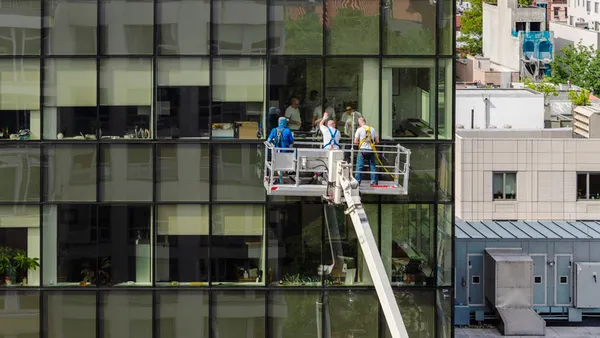Dive Brief:
- Detroit reversed a decision to enforce an update to the city's zoning code, which would have made it illegal for property owners to rent out their homes or apartments in the city's R1 and R2 zones, according to the Detroit Metro Times.
- The brief "enforcement" of the zoning code sparked backlash from city residents — Detroit is home to 430 active Airbnb hosts — who expressed disappointment and concern due to Airbnb being a source of income. Today, David Bell, the city's director of the buildings, safety engineering and environmental department, released a statement that says the rules were misinterpreted, and Airbnb hosts will not be penalized while the city law department reviews the ordinance. "The ordinance as written appears to ban all homeowners from having even their own friends and relatives stay at their homes if that friend or relative is paying them rent. The public was never told that was intended. I have asked the law department to review this question and give BSEED guidance," the statement read.
- Airbnb spokesperson Benjamin Breit told the Detroit Metro Times, "We applaud the city for doing the right thing and protecting every day people who are sharing their homes to pay the bills." He said the company looks forward to continuing its collaboration with Detroit.
Dive Insight:
Breit told Smart Cities Dive it has been "a crazy 24 hours" since the city's updated zoning ordnance first started drawing media attention. While Bell noted in a statement that media reports about enforcement efforts were "false" — despite a number of Airbnb hosts posting photos of notices they'd received saying short-term rentals were no longer permitted — reactions suggest that the media attention could have been what turned the city on its decision.
The more evident issue was the lack of communication and comprehension of the original zoning code update. Mashable reports that even the mayor was "confused" about the ban, as were city residents and Airbnb itself. Despite the intentions of the updated zoning code, the city council recognized the value in transparency moving forward, should they decide to regulate short-term rentals — or anything, for that matter — in an immediate fashion.
This scenario is also indicative of how engrained the shared economy has become in the lives of city dwellers. The possibility of losing the option to rent out homes with the Airbnb service was significant for many hosts who depend on the service as a source of income. As Smart Cities Dive previously reported, cities may be better off taking the Boston-approach of regulating these rental options through registration fees or time limits instead of banning them altogether.










